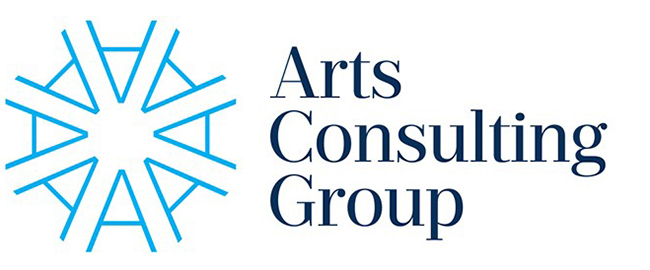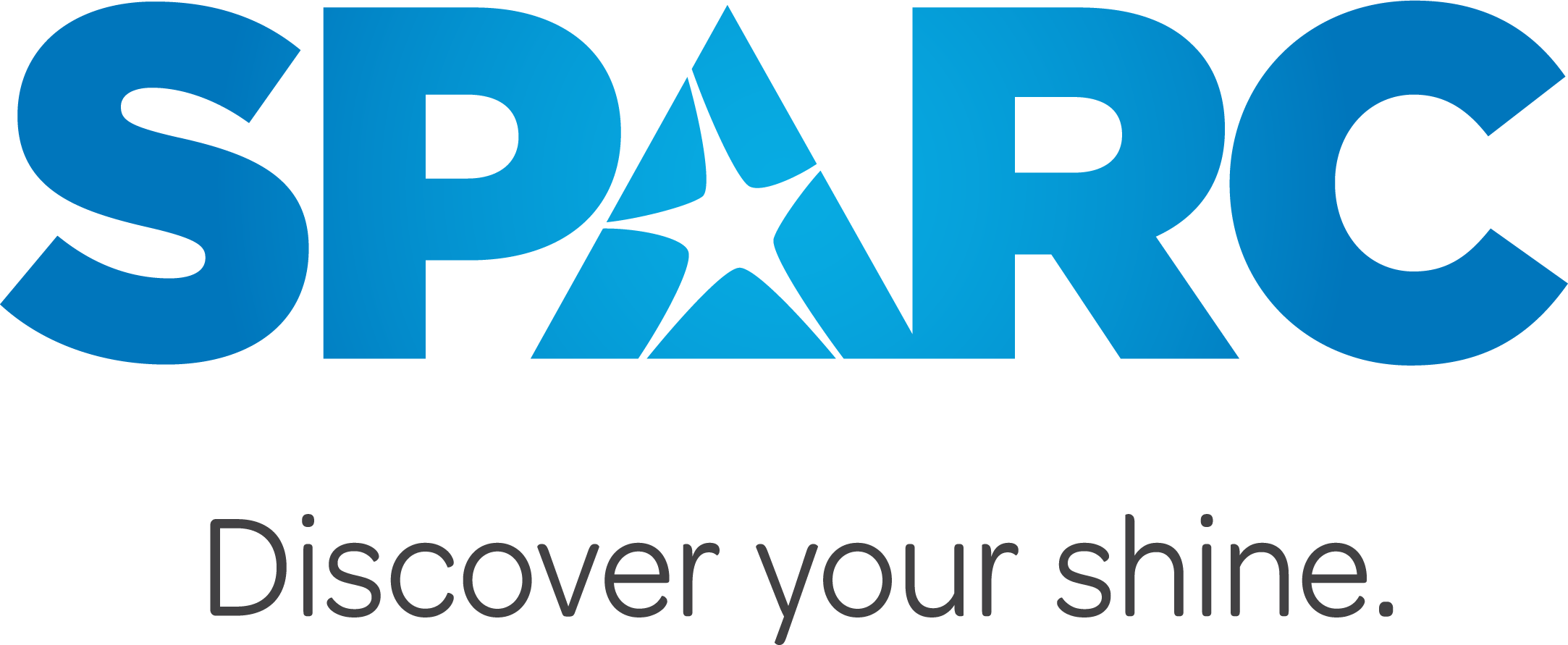Organization
Founded in 1981 by Richmond actress Jeri Cutler-Voltz, SPARC (School of the Performing Arts in the Richmond Community) provides transformative performing arts education to almost 2,000 students each year. Through SPARC’s highly skilled teaching artists who intentionally integrate the arts with youth development principles, students discover their creativity and build critical learning and life skills that carry into adulthood. SPARC’s mission is to profoundly influence young people’s lives through exceptional performing arts education.
Since its founding, SPARC has grown into a nationally recognized provider of community-based arts education programs for young people. Through its range of classes, workshops, camps, and productions, SPARC provides performing arts training and skill development—including confidence, creativity, and character building—which have helped launch a number of national-level performing artists to successful careers in theater and music and helped generations of youth discover their shine. With more than 150 students assisted by free or reduced-price tuition annually in its arts training programs, SPARC never turns away a child because of inability to afford its programs. SPARC offers a wide range of theater training levels, from introductory classes to auditioned productions. Its production season includes three to four auditioned titles per year. SPARC’s summer camp series—its largest training series—enrolls more than 650 students.
In response to the adoption of its 2017 strategic plan, SPARC has invested significant resources in Creative Youth Development programming, providing numerous educational and community outreach initiatives. Debuting in 2006, SPARC’s STAGES program serves more than 350 students each year, bringing performing arts education and opportunities into schools in primarily low-income neighborhoods. SPARC’s New Voices for the Theater program inspires high school students across Virginia to explore creative playwriting, awarding a two-week summer residency to the top eight applicants statewide. Launched in 2012, LIVE ART provides arts-for-all classes for more than 160 students ages nine to 21, half with developmental disabilities and half typically developing. SPARC also engages deeply with community partner organizations to implement Right Now, which engages middle school students living and learning in the East End in arts programming, and Spectrum, a theater program for LGBTQ+ youth and allies that is based on best practices from the Pride Youth Theater Alliance.
In 2009 SPARC purchased its property on North Hamilton Street in Richmond and transformed the 30,000-square-foot facility into class studios, a black-box theater, scenic construction and warehouse space, and administrative offices. Debt-free ownership was achieved in 2013. Final renovations added two additional studio teaching spaces, an elevator, and the attainment of near-universal accessibility. SPARC now builds and stores sets, rehearses and produces shows, and trains and applauds young actors all in one place while still maintaining satellite locations for access and convenience of students and their families. SPARC’s neighborhood, Scott’s Addition, has become one of the trendiest and fastest growing neighborhoods in the city, boasting an abundance of restaurants, breweries, entertainment, and residential offerings.
SPARC is governed by a 22-member board of directors, led by President Pamela S. Belleman. In its 40-year history, SPARC has benefitted from long-serving executive directors who have proudly diversified programs, solidified the business model, and expanded SPARC’s presence and impact in the community. In early 2020, SPARC’s committed board and dedicated staff swiftly responded to the COVID-19 pandemic to ensure the organization’s continued sustainability. The organization adapted new program delivery methods and safe spaces were constructed to return as many students as possible, as soon as possible, to vital SPARC programs. Historically, SPARC has an operating budget of $2.4 million to $2.6 million. In the fiscal year ending August 31, 2020, total reported revenue was $1.3 million, with $949,961 from contributions and grants and $344,156 from program service revenue. The school also received a PPP loan during this period. Reported expenses were $1.8 million.
Community
Richmond is the capital of the Commonwealth of Virginia and the third largest city in the state. The Richmond Metropolitan Statistical Area is comprised of the City of Richmond and surrounding cities, towns, and counties, with a total population of 1.3 million people and growing. The region offers activities for everyone, including a lively downtown, arts performances and festivals, state and national parks, wineries, and quiet rolling hills. Richmond’s proximity to mountains, the coast, and Washington, DC provides residents countless opportunities to experience culture and adventure.
Richmond’s business climate is thriving, with several Forbes 500 and Forbes 1000 companies calling the region home. The area’s top employers include federal, state, and local government, as well as the healthcare, financial services, and retail industries. Richmond has a thriving nonprofit sector, including the arts. Americans for the Arts’ Arts & Economic Prosperity 5 study found total expenditures by nonprofit arts and culture organizations to exceed $211 million in 2016. The Richmond region also features a number of colleges and universities, including Virginia Commonwealth University (which houses the top public art school in the United States), University of Richmond, Virginia Union University, Virginia State University, and Randolph-Macon College.
In recent years, Richmond has gained national recognition for its arts and culture. Trip.com named Richmond the most artistic mid-sized city in America and Artnet named Richmond the ninth best United States city overall for art lovers. The New York Times included Richmond in its list of 52 Places To Go in 2020, calling it a “dynamic cultural center on the cutting edge of the arts, food, and recreation.” A city in the process of remaking its image, Richmond has removed all but one Confederate monument within months of the installation of Kehinde Wiley’s Rumors of War at the Virginia Museum of Fine Arts. In January 2021, National Geographic selected a photo of the remaining Robert E. Lee Monument, complete with graffiti and a projection of George Floyd, for the cover of its 2020 Year in Pictures issue. The city was named by National Geographic as a place to visit for food and by Condé Nast Traveler as a southern food destination. The Richmond region also boasts more than 30 craft breweries. Richmonders enjoy a wealth of historical landmarks, natural beauty, and opportunities for outdoor recreation, including the country’s only class III and IV urban rapids, the extensive James River Park system, and some of the most diverse bike trails of any city in the United States.
Sources: visitrichmondva.com; livability.com; nationalgeographic.com; cntraveler.com; richmondgov.com; vcucns.com; americansforthearts.org; richmond.com; trip.com; artnet.com; newyorktimes.com
Position Summary
Reporting to the board, the Executive Director will be the chief executive officer and responsible for the financial sustainability and overall success of SPARC. This people-oriented Executive Director will inspire passion and commitment while maintaining the confidence of SPARC’s stakeholders. They will set a clear direction for the organization and ensure the resources, systems, and structures are in place to meet its strategic goals. With the achievement of SPARC’s mission and values ever before them, the Executive Director will ensure that all activities are aligned with the strategic plan yet remain flexible to pivot as necessary. They will balance the capacity to make decisions driven by data as well as community and organizational needs. The Executive Director will value diversity and create an environment that is sustainably inclusive and equitable. They will be a positive role model who works creatively and collaboratively across the organization and throughout the community to build strong external relationships with individuals and institutions that contribute to the learning experience and success of SPARC’s students.
Roles and Responsibilities
Strategic Vision and Leadership
- Embody and lead SPARC’s evolution in practices of equity, diversity, and inclusion throughout the organization, including staff, faculty, and student populations.
- Provide inspirational leadership and direction to all employees, especially the senior leadership team and other direct reports, and assure the continued development and management of a professional and efficient organization.
- Collaborate with the board of directors to maintain and implement an innovative, programmatic strategic plan while ensuring that the budget, staff, and priorities are aligned with SPARC’s mission.
- Cultivate a strong and transparent working relationship with the board and ensure open communication about the measurement of performance against goals and objectives.
- Help build a diverse and inclusive board that is representative of the community, highly engaged, and willing to leverage and secure resources.
- Participate in outward-facing events, workshops, committees, and associations to build and maintain external relationships and demonstrate leadership in the community through involvement and participation.
- Actively participate in all board meetings and provide support to board committees and subcommittees as needed.
Community Engagement and Revenue Enhancement
- Serve as the lead spokesperson for SPARC, communicating effectively to all internal and external constituents.
- Maintain an accessible and familiar persona with SPARC students, faculty, partners, and donors.
- Ensure that the flow of funds permits SPARC to make continuous strategic progress and that those funds are allocated properly to reflect present needs and future potential.
- Formulate and oversee comprehensive marketing, branding, and development strategies that will safeguard consistency throughout the organization and grow revenue from major donors, foundations, government agencies, and corporations.
- Embrace the Executive Director’s critical role as a key fundraiser and actively cultivate, solicit, and steward major donors/grantors in coordination with development staff.
- Build and foster relationships with new, current, and potential constituents, partners, and funders.
- Oversee all revenue generation and provide routine reports and updates to the board of directors.
Operational Excellence
- Establish effective decision-making processes that will embolden SPARC to achieve its long- and short-term goals and objectives.
- Facilitate cross-departmental collaboration and strengthen internal communication with staff throughout the organization.
- Ensure the continuous improvement of SPARC’s programs and operations, consistent with best practices and emerging trends.
- Oversee the organization’s financial sustainability, develop the long- and short-range financial plans, monitor the budget, and ensure sound financial controls are in place.
- Establish accurate financial priorities to confirm the organization is operating in a manner that supports the needs of the program and staff.
- Ensure the stewardship of SPARC’s assets, including facilities, equipment, endowment, intangible assets, and human resources.
- Maintain internal business practices and controls, including appropriate accounting of revenues and expenses.
- Create and promote a positive, diverse work environment that supports consistency throughout the organization’s strategic and operational goals.
- Attract, retain, support, and motivate a diverse staff and faculty.
- Conduct annual performance evaluations for all administrative staff.
Traits and Characteristics
The Executive Director will be a diplomatic and collaborative leader who embraces SPARC’s mission to profoundly influence young people’s lives through exceptional performing arts education and remove barriers for those most impacted by societal inequality. They will value connecting with stakeholders and will be highly visible and engaged in the community. A sound decision maker and tactful communicator, the Executive Director will demonstrate integrity and optimism and dependably involve people in decisions that affect them. Committed to creativity and continuous learning, the Executive Director will be versatile and receptive to new ideas and methods. They will also have the ability to respond to frequent change and prioritize tasks to ensure desired outcomes.
Other key competencies include:
- Leadership and Decision Making – The capacity to organize, inspire, and influence people to believe in a vision, creating a sense of common purpose centered on the well-being and growth of SPARC’s students. The ability to analyze all aspects of a situation and make consistently sound and timely decisions.
- Diplomacy and Interpersonal Skills – The dexterity to effectively and tactfully handle difficult or sensitive issues and to constructively embrace different points of view, resolve conflicts, and bring cohesion to a wide array of stakeholders while interacting with them in a positive manner, treating them fairly, and listening carefully to what they have to say.
- Personal Accountability – The ability to take responsibility, be accountable, listen and use feedback, and analyze data to learn from mistakes, possessing a high degree of awareness of the impact of personal actions and decisions.
- Time and Priority Management – The aptitude to ascertain competing priorities, resolve difficulties, overcome obstacles, and maximize the use of time and resources to attain the desired artistic outcomes.
Qualifications
Qualified candidates will have a bachelor’s degree or equivalent (master’s or advanced degree preferred), plus at least seven years of increasing responsibility in nonprofit management. Prior executive-level experience with an arts education organization is ideal but not required. Significant experience and a proven track record of board development, fundraising, marketing/branding, and fiscal management are expected. Outstanding presentation and communication skills and the experience and proclivity to be a genial spokesperson, relationship builder, and fundraiser are needed. A strong commitment to the professional development of staff and successful track record of recruiting and retaining a diverse team are essential.
Compensation and Benefits
SPARC provides a competitive salary, expected to be in the range of $90,000 to $100,000. Benefits include health, medical, and dental insurances; paid time off; health care contribution; short- and long-term disability coverage; term life insurance; and matching 401(k) contributions.
Applications and Inquiries
To submit a cover letter and resume with a summary of demonstrable accomplishments, please click here or visit artsconsulting.com/employment. For questions or general inquiries about this job opportunity, please contact:
Wyona Lynch-McWhite
Senior Vice President

292 Newbury Street, Suite 315
Boston, MA 02115-2801
Tel (888) 234.4236, Ext. 225
Email SPARC@ArtsConsulting.com
SPARC is committed to the most fundamental principles of equality of opportunity and human dignity. SPARC does not discriminate on the basis of race, color, religion, national origin, sex, gender identity (including gender expression), sexual orientation, disability, age, marital status, military or veteran status, or status with regard to public assistance.
Click here for the downloadable PDF.

